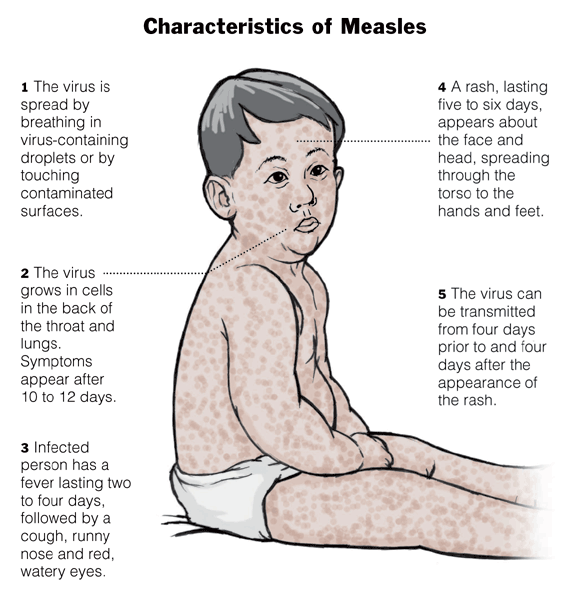Measles Outbreak Ignites Debate over Vaccines

It all started in January when a disease that was nearly eradicated from existence made its return in a big way. At Disneyland in California, other children and staff were exposed to a child with measles, an acute viral infectious disease with an incubation period of 10-12 days. The exposure resulted in nine confirmed cases of measles. Since then, a larger controversy has erupted, and an online group called Parents Against Vaccines is at its helm. The group encourages parents to refuse to vaccinate their children, something often required for enrollment in school.
According to the Centers for Disease Control (CDC), a vaccine for measles has been around since 1963 and had decreased the incidence of measles by 98%. Before that, measles were considered more lethal than smallpox. The first surge of measles outbreak came in 1989-1991, with 90% of fatal cases occurring among persons with no history of vaccination.
With the renewed debate over the recent measles outbreak, parents are taking a firm stance against “injecting toxins” into their children. They site the number of children who have died from allergic reactions to vaccines as proof of why parents should not be bullied into vaccinating their kids.
Measles can be deadly, and not having children vaccinated keeps them vulnerable. Parents should be forced to get their children vaccinated because even though the parents get to choose what to do for the child, not giving them vaccines can be considered abusive and uncaring. Groups like Parents Against Vaccines say that they have the right to do what they think is best for their children. I side with those who say that the kids should be vaccinated. The kids deserve to get the protection that they need against infectious diseases.
To learn more about the myths associated with vaccinations, read http://www.publichealth.org/public-awareness/understanding-vaccines/vaccine-myths-debunked/
Also, read what the other side believes: http://greatmothersquestioningvaccines.com/doctors—what-are-some-of-them-saying.html







